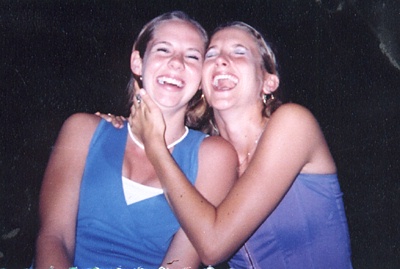All Nonfiction
- Bullying
- Books
- Academic
- Author Interviews
- Celebrity interviews
- College Articles
- College Essays
- Educator of the Year
- Heroes
- Interviews
- Memoir
- Personal Experience
- Sports
- Travel & Culture
All Opinions
- Bullying
- Current Events / Politics
- Discrimination
- Drugs / Alcohol / Smoking
- Entertainment / Celebrities
- Environment
- Love / Relationships
- Movies / Music / TV
- Pop Culture / Trends
- School / College
- Social Issues / Civics
- Spirituality / Religion
- Sports / Hobbies
All Hot Topics
- Bullying
- Community Service
- Environment
- Health
- Letters to the Editor
- Pride & Prejudice
- What Matters
- Back
Summer Guide
- Program Links
- Program Reviews
- Back
College Guide
- College Links
- College Reviews
- College Essays
- College Articles
- Back
My Privacy is Alive and Well MAG
Recently I realized why I have so much trouble with small talk. Finding trivial things to say to someone to pass the time is really difficult when you already know hundreds of unimportant facts about them. Being friends with someone on Facebook means that I often know everything from what he did last summer to what he had for dinner last night. How can I be expected to feign interest in a story I've already seen tweeted, posted, and photo-tagged ten times?
Privacy has been decreasing rapidly with the increasing popularity of Facebook, twitter, tumblr, and other social media outlets. More and more people are sharing private information on the Internet without thinking twice. Websites make it easy and fun to divulge these details, including your favorite ice cream flavor, relationship status, and location at any given moment. The increasing amount of information shared by users has changed social norms as well as the way many people perceive their own lives.
As popularity of social media multiplies daily, we need to evaluate the role these sites play in decreasing our privacy. Peter Cashmore, CEO of Mashable Inc., went so far as to say, “Privacy is dead, and social media holds the smoking gun.” However, I disagree. While it's clear that social media has assisted millions in expanding their lives, making vast amounts of personal information public, we need to remember that we are still in control of what we disclose. Privacy is not dead; it lives on despite being made unpopular by the rising tide of social media.
People who have resisted the pull of peer pressure and decided not to participate in social media show that we have a choice: We can choose not to broadcast the details of our lives on the Internet. One of my good friends decided after a month of using Facebook that it wasn't for her, and deleted her account. She survives without any kind of social media outlet, and has all the privacy she wants. When she began new classes last fall, the students sitting next to her didn't know how she spent her summer and wouldn't have guessed that she visited a Native American reservation. Her other classmates knew all about each other's activities, even though they didn't necessarily know each other. The fact that people like my friend exist shows that privacy is not dead; social media doesn't control us. We can chose to opt out.
Others, like me, have social media accounts but use them carefully to maintain privacy. Although I have a Facebook account, I don't post information about myself. Where users have entered their education, hometown, and relationship status, I've left these blank. I never post statuses about what's on my mind, nor do I post pictures showing what I've been up to. I've also turned my chat settings to “offline” so when I log on to message a friend or wish someone a happy birthday, no one knows I'm online. This way, information I want to keep private – like what I did on Sunday, or who I hung out with – stays private. These options on sites like Facebook exist so that we can make choices about what we keep private. If people have lost their privacy on social media websites, it's because they willingly gave it up; social media doesn't force them to do so.
Even those who use social media actively and regularly post personal information haven't completely given up their privacy. They choose what to post, and no one can fit their entire life onto a blog or a tweet. There is some information that even the most avid blogger or up-to-date tweeter wouldn't share, and it's up to each person to decide what's too much. We are all capable of turning off our phones and logging out of Facebook, Twitter, and Tumblr, even if doing so is harder for some than for others.
We can't deny that social media has led to people sharing more, and has made our private lives shrink while making our public lives expand. does make it easy to share, and seeing an so many of personal posts on a popular Tumblr makes others want to share. The fact that friends can tag us in posts whether we like it or not makes it hard to always say that we control what is shared. Despite all of this, we do have a choice, and our privacy is not dead. We control what we post, and thanks to changes in the policies of sites like Facebook, we can make sure that we are aware of what others say about us online.
Social media may have changed our culture's norms and made less privacy acceptable, or perhaps even made privacy uncool, but it definitely hasn't killed privacy. We are all in control of how much we share. I have no plans to share what I ate for dinner, and no amount of social media pressure can change that. My privacy is alive and well.

Similar Articles
JOIN THE DISCUSSION
This article has 0 comments.